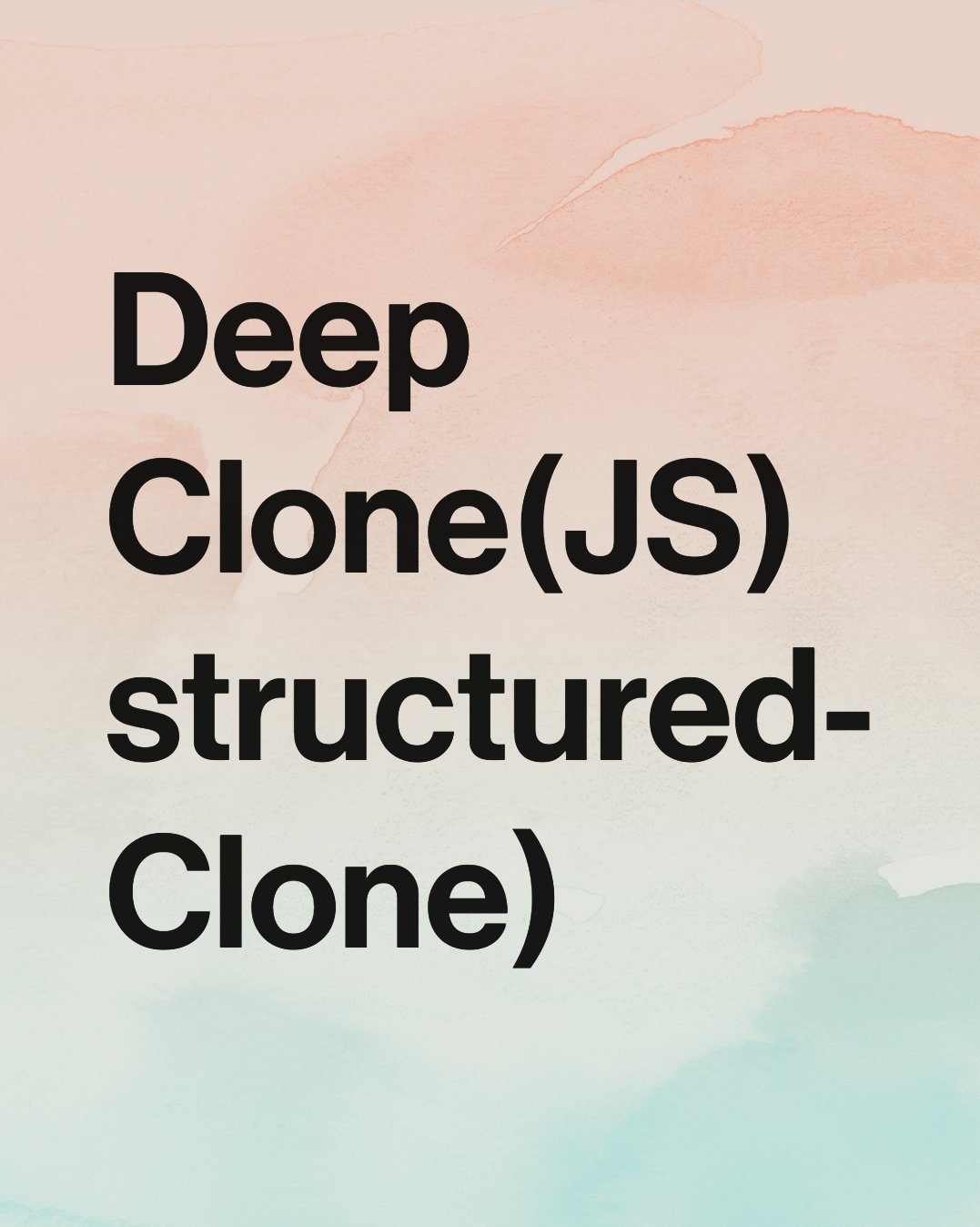Deep Clone(Javascript structuredClone)
 Anil Verma
Anil Verma
Problem- Deep Clone nested objects in javascript
Solution 1
JSON. parse(JSON. stringify())
Solution 2 - using any third-party lib like (lodash-_-clone deep-method)
_.cloneDeep( value )
Solution 3 - Write your own function/Code
Solution 4 — The structured clone algorithm(Very Popular)
The structured clone algorithm copies complex JavaScript objects. It is used internally when invoking structuredClone()
The returned value is a deep copy of the original value.
//with structuredClone
const person = {
name: 'Anil',
skills: ['FullStack'],
joiningDate: new Date('2023-10-25')
}
const person2 = structuredClone(person);
person2.name = 'Anil Verma';
console.log(person.name); //Anil
console.log(person2.name); //Anil Verma
//With spread operator
const person = {
name: 'Anil',
skills: ['FullStack'],
joiningDate: new Date('2023-10-25')
}
const person2 = {
...person
}
Note- skills is an array altering person2.skills will alter person.skills
//With stringify
const person = {
name: 'Anil',
skills: ['FullStack'],
joiningDate: new Date('2023-10-25')
}
person2 = JSON.parse(JSON.stringify(person))
Note- joiningDate is a Date object it will become string value
Things that don’t work with the structured clone
Function objects cannot be duplicated by the structured clone algorithm; attempting to throws a DataCloneError exception.
Cloning DOM nodes likewise throws a DataCloneError exception.
Certain object properties are not preserved:
The lastIndex property of RegExp objects is not preserved.
Property descriptors, setters, getters, and similar metadata-like features are not duplicated.
The prototype chain is not walked or duplicated.
Source: MDN
Happy learning…. 👏👏👏👏
Subscribe to my newsletter
Read articles from Anil Verma directly inside your inbox. Subscribe to the newsletter, and don't miss out.
Written by

Anil Verma
Anil Verma
Hi there 👋, I am Anil Verma I am a passionate Full Stack Web Developer who is fascinated by complex engineering problems.